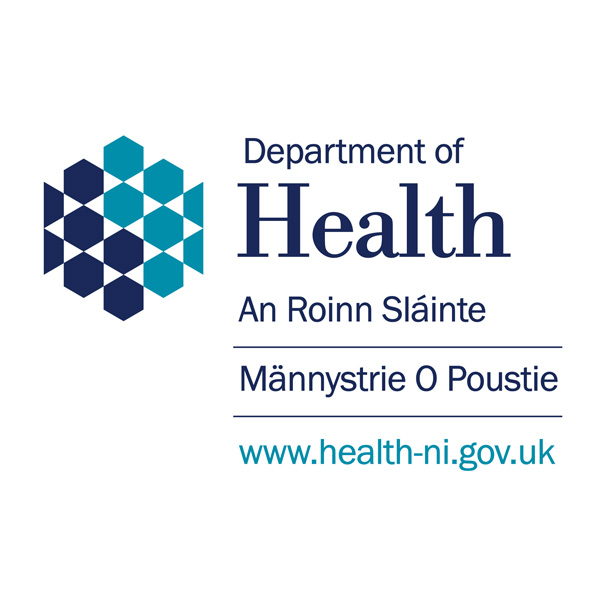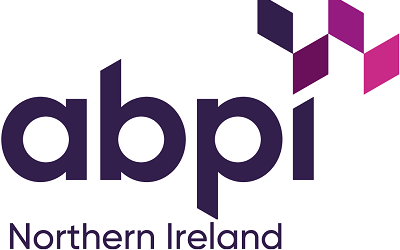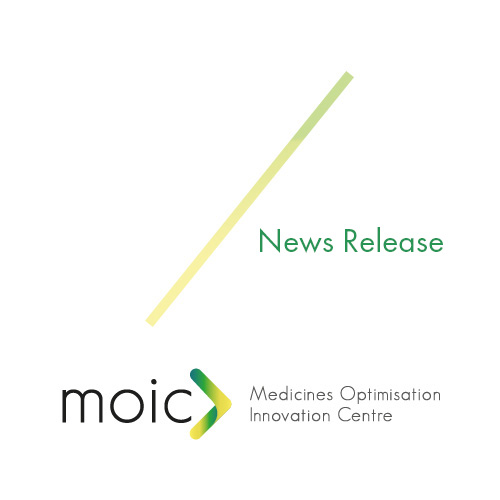
by MOIC | Feb 2, 2016 | partners
The Medicines Optimisation Quality Framework has been developed to support better health for the population of Northern Ireland by focusing attention on gaining the best possible outcome from medicines every time that they are prescribed, dispensed and administered and by addressing gaps in pharmacist to patient facing interventions in health and social care settings. The Medicines Optimisation Quality Framework supports an approach in which patients are more involved in decisions about their medicines and are supported by multidisciplinary professionals working collaboratively to deliver best practices which aim to achieve the best possible health outcomes from their treatment. It introduces a regional model for medicines optimisation supported by quality standards and an integrated reform and innovation programme to develop, test and scale up best practices across the HSC.
The Framework sets expectations for improvements in the three domains of quality and is primarily aimed at those with responsibility for, and influence on, commissioning decisions and front line service delivery in Northern Ireland.
Innovation is an important component of the Framework and a strategic approach will be adopted to deliver a regional innovation and change programme.
Led by a regional steering group comprising of an alliance of HSC stakeholders, including commissioners, the programme will involve a prioritised work plan to develop, test and scale up best practice solutions, exploiting new and existing funding streams, whilst using existing funding streams and resources efficiently.
The MOIC will support this by providing the expertise to:
Project manage an innovation programme of research and service development projects. Develop, test and evaluate solutions to pre‐commissioning stage. Support successful translation into HSC service delivery and commissioning. Help projects to access and utilise available funding streams. Provide a regional centre of expertise for research and service development in medicines optimisation and post‐implementation review of service delivery. Build local expertise and competence in developing and translating research into
practice. Facilitate a continuous cycle of improvement within the HSC in the area of medicines optimisation. The work of the MOIC will lead to the development of a medicines optimisation network linking the HSC with other health and life science networks and innovation centres in Northern Ireland, UK and internationally.
It will also support knowledge sharing within the HSC and support the development of collaborative working partnerships between participants such as commissioners (HSC Board, Trusts, PHA, BSO), policy (DoH), patients, independent contractors (GPs and community pharmacies), independent domiciliary care providers, academia (UU and QUB), pharmaceutical and technology Industries, voluntary sector, expert(s) with research skills, NIMDTA, NICPLD, NIPEC, other innovation centres and translational research groups e.g., CTRIC, Health and Social Care professionals, and experts from across the UK and international.
https://www.health-ni.gov.uk/publications/northern-ireland-medicines-optimisation-quality-framework

by MOIC | Feb 2, 2016 | partners
Collaborative research between The Clinical and Practice Research Group at the School of Pharmacy, Queen’s University Belfast and the Northern Health and Social Care Trust has been ongoing for some 30 years. The collaboration has involved a broad range of areas within clinical pharmacy, including the development of time series analysis models to assist in antimicrobial stewardship, integrated medicines management systems, new approaches to discharge planning (including recent work on telephone follow-up) and developing algorithms for risk of rehospitalisation. Ongoing work includes the impact of GP practice-based pharmacists on medicines optimisation and the development of pharmacist led outpatient medicines management clinics. International PhD students have performed a key role in delivering the research programmes over the years and have formed a platform for ongoing international collaborations.

by MOIC | Feb 2, 2016 | partners
Healthcare Analytics has partnered with the Medicines Optimisation Innovation Centre (MOIC) with the support of HSC Innovations to design, build and deliver a single analytics platform for the safe and effective deployment of healthcare resources. The Service delivers effective asset management by tracking, tracing, optimising and managing all assets across a Healthcare organisation including specialist staff or a wide range of physical equipment. Our unique solution binds together all of the elements associated with an asset during its lifetime. Issues such as maintenance, cleaning, location and ownership can be grouped together securely and offer the healthcare organisation a 100% accurate description of the asset. As each asset has a unique identifier, product traceability and recall become easier and more cost efficient.

by MOIC | Feb 2, 2016 | partners
The Association of the British Pharmaceutical Industries (ABPI) (http://www.abpi.org.uk/) is a body representing some 120 pharmaceutical companies of all sizes. Member companies have commitment to working with the NHS and the HSC on a range of projects. Such projects are strictly governed under the ABPI Code of Practice and companies must comply with this when engaging with NHS/HSC partners (ABPI 2021 Code of Practice).
A Memorandum of Understanding (MOU) was signed between the ABPI and the Northern Ireland Medicines Optimisation Innovation Centre (MOIC) (on behalf of the HSC) in September 2020. This MOU established a formal partnership, the HSC Industry Partnership (HSCIP), under which the ABPI will work together in partnership with the HSC to introduce transformative, medicines-related innovation across the Health and Social Care system over the next 5 years.
The HSCIP is a ‘Portal’ process, acting as a conduit for collaborative proposals to improve health outcomes for patients. Ideas for these projects may originate in two ways: either from a need expressed by Health and Social Care and/ or from ideas proposed by individual companies or collectives of companies.
A library of 185 UK joint and collaborative working case studies is available to date. This includes 9 projects from Northern Ireland (NI) NHS-Industry Partnership Case Studies Library (abpi.org.uk).
Case study example: NI Regional Heart Failure Service Transformation Project
A call in the area of heart failure was drafted by clinical leads and MOIC. This was issued to industry partners, via the ABPI, in March 2023. Following an evaluation process, a commercial partner was selected to work with MOIC and the Cardiac Network at SPPG on a 12 month project. Governance arrangements were established and a Strategic Leadership Group was formed prior to commencing the project in September 2023. The project was conducted as an Industry Donation of Goods and Services under which the industry partner donated expertise and time.
The project aimed to address three key priority areas of the heart failure pathway in Northern Ireland (NI):
- Early Identification and Referral
- Triage and Patient Prioritisation
- Optimal Treatment and Discharge
Initially, workshops, facilitated by the commercial partner, were held at various locations across NI with representatives from each HSC Trust to map the current heart failure pathway and identify variance/bottle-necks in the system. Mapping workshops were well supported and included representation from Cardiology Consultants; Heart Failure Nurse Specialists from both primary and secondary care; Pharmacists and Service Managers. Based on these findings, key recommendations will be made to create a more streamlined and equitable heart failure service for NI.
Task and Finish groups were subsequently established to work on the three priority areas. Each HSC Trust was represented by a range of secondary care heart failure specialists, Service Managers, GPs, GP Pharmacists and community-based nurses. These groups contributed to the modelling of a future pathway for heart failure services in NI, according to clinical guidelines and gold standards of heart failure care. A draft of the new future service specification is expected in September 2024, which will be used by SPPG to inform a business case. An in-person event is being planned for late 2024 to showcase the success of the project.

by MOIC | Dec 9, 2015 | News Release, Press
Speaking at the 4th Conference of Partners of the European Innovation Partnership on Active and Healthy Ageing on 9th December 2015 Health Minister Simon Hamilton explained how the Medicines Optimisation Innovation Centre will enable us to produce solutions which can be developed commercially, and marketed and shared with other countries.
‘Medicines are the most commonly used healthcare intervention in our health and social care service – and with an ageing population, and a rising number of people with long term conditions, demand for them is high’, Health Minister Simon Hamilton said at the 4th Conference of Partners of the European Innovation Partnership on Active and Healthy Ageing on 9th December 2015. ‘An area in which Northern Ireland has achieved particular recognition through the European Innovation Partnership is medicines optimisation and in recent years we have been working to address the physical, structural and behavioural barriers to medicines optimisation through the development of innovative solutions.
‘However, this is an area in which we have greater ambitions – and for that reason I am pleased to announce Northern Ireland has established a Medicines Optimisation Innovation Centre which will enable us to build on our existing expertise.
‘The Centre will take a focused, systematic approach to developing and testing medicines optimisation solutions and supporting their translation into service delivery.
‘We are confident that it will bring wider benefits, enabling us to produce solutions which can be developed commercially, and marketed and shared with other countries; and increasing our capacity for collaboration with established international research networks.
‘The establishment of this Centre owes much to the EIP initiative. The international profile which our work on medicines optimisation has gained through the Partnership has brought home to us the extent of the opportunity – both for us to specialise further in this area, and for other regions to benefit from adopting our evidence-based solutions.
‘We have already seen our medicines management model being deployed in hospitals in England, the Republic of Ireland, Sweden, Norway and the Netherlands; further work is currently in progress with a number of Baltic and Balkan countries; and we are participating in a 3rd Health Programme project involving eight member states. ‘In short, I believe this is a scaling-up success story and testimony to the value of initiatives like the EIP in supporting the international diffusion of best practice. Our work in the A1 Action Group and with other Reference Sites has served both to increase the capacity of those participating regions looking for innovative medicines optimisation solutions; and to open up avenues to allow us to share ours and to learn from others.’





